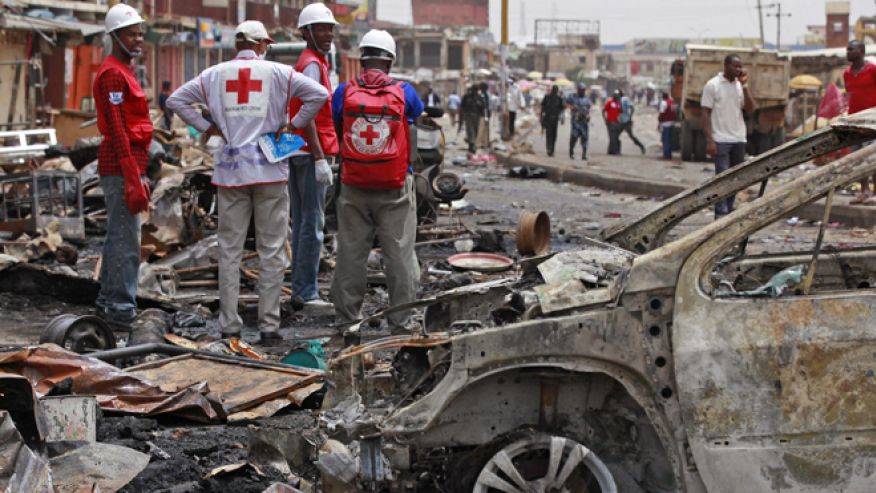
A disturbing new report released by Open Doors, an international group supporting persecuted Christians worldwide, has revealed that Nigeria was the most violent persecuter of Christians in 2014.
On Wednesday, Open Doors released their annual survey, World Watch List, which monitors religious freedom. The study found that Islamic militants, such as Boko Haram and the Islamic State, posed the greatest threat to the faith in 18 of the 20 countries that the list says are most dangerous for Christians.
Nigeria topped the list of most Christians confirmed to have been killed for their faith, with a staggering 2,484, followed by Central African Republic with 1,088. In the Middle Eastern countries of Syria and Iraq, 271 and 60 Christians have been killed respectively.
"It is fair to say that Islamic extremism has two global centres of gravity. One in the Arab Middle East, but the other is in sub-Saharan Africa, and even Christian majority states are experiencing unprecedented levels of exclusion, discrimination and even violence," writes Ron Boyd-MacMillan, director of strategic trends and research for Open Doors International, in a report supplementing the World Watch List.
Open Doors researchers measure persecution by "the degree of freedom a Christian has to live out his or her faith in five spheres of life (private, family, community, national, and church life)," as well as by tallying acts of violence.

For the 13th year in a row, North Korea topped the list of countries most hostile to Christianity overall, followed by Somalia, Iraq, Syria, Afghanistan, Sudan, Iran, Pakistan, Eritrea and Nigeria, while China registered the most attacks on churches. The 4,344 Christians killed in the survey year to Oct. 31 were more than double the 2,123 victims in 2013, it said.
"The survey scores assigned to the 50 countries rose by nearly 10 percent compared to the 2014 scores, indicating a generally rising tide of antagonism toward Christians in the 50 countries most hostile to believers," the survey concludes.
According to Boyd-McMillan, the cause for this rise in persecution is due to "increased cultural marginalization" of religious minorities, making daily life ever more difficult for Christians.
Such trends have particularly grown in countries with religious nationalist movements such as Hindu-majority India and Buddhist-majority Sri Lanka, he explained.
However, the group noted that fragmented Christian groups in the Middle East, and particularly in Syria, "have drawn together in a remarkable new unity," due to persecution from Islamic groups. The study also found that Muslim leaders opposed to Islamic extremism in the Middle East have shown increasing support for Christian minorities.














